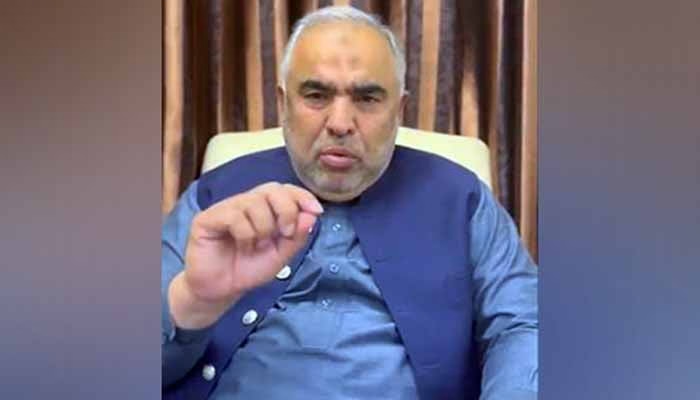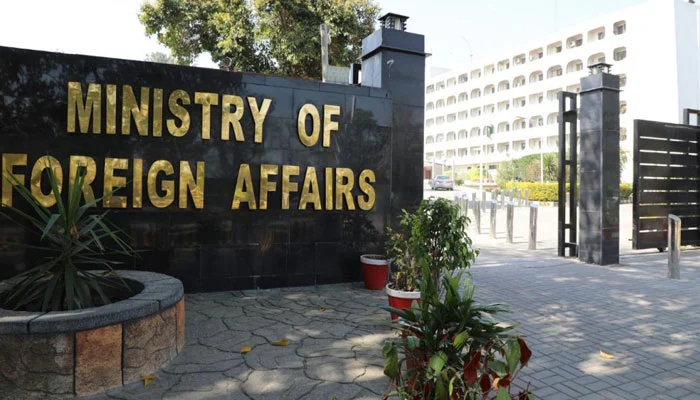Amid Pakistan’s turbulent political landscape, former Speaker of the National Assembly and Pakistan Tehreek-e-Insaf (PTI) leader Asad Qaiser has reiterated his party’s willingness to engage in meaningful dialogue. Speaking to Geo News in Peshawar, Qaiser emphasized the importance of resolving the ongoing political and law-and-order crises through discussion and collaboration.
PTI Considers Jirga for Future Strategy
Qaiser revealed that PTI is actively considering convening a jirga to address the current political turmoil and security challenges facing the nation. The jirga, a traditional forum for resolving disputes, would aim to chart a future course of action regarding ongoing protests and other pressing issues.
He stated, “If the government is serious about talks, we are ready to talk.” This clear message underscores PTI’s readiness to seek a peaceful resolution to the ongoing deadlock, provided the government demonstrates genuine intent.
A Platform for Inclusive Dialogue
According to PTI sources, the proposed jirga would bring together opposition leaders, tribal elders, and other key stakeholders. This inclusive approach aims to ensure that diverse perspectives are represented, paving the way for a comprehensive solution to the nation’s challenges.
Speculations About Government-PTI Talks
The possibility of negotiations between PTI and the government has been a topic of speculation for weeks. Reports of behind-the-scenes meetings have surfaced, fueling public curiosity about whether the two sides can find common ground.
Despite these reports, no official roadmap for negotiations has been disclosed by either side. The jirga proposal could potentially serve as a catalyst for formalizing these discussions, offering a structured platform for dialogue.
Political Deadlock and Protests
The political crisis in Pakistan has escalated in recent months, with PTI at the forefront of nationwide protests against the government. These demonstrations have been fueled by grievances over economic instability, governance issues, and allegations of political persecution.
The law-and-order situation has also deteriorated, adding urgency to calls for a peaceful resolution. In this context, Asad Qaiser’s proposal for a jirga represents a significant step toward de-escalation.
A Glimpse into PTI’s Strategy
By proposing a jirga, PTI appears to be signaling its commitment to constructive engagement. The move aligns with the party’s broader strategy of maintaining public pressure while keeping the door open for negotiations.
Political analysts believe that the jirga could also serve as a platform for PTI to present its demands, including electoral reforms and accountability measures.
The Role of Tribal Elders
The inclusion of tribal elders in the proposed jirga is a noteworthy aspect of PTI’s strategy. Tribal elders have traditionally played a pivotal role in conflict resolution in Pakistan, particularly in regions with a strong jirga culture.
Their involvement could lend credibility to the initiative and help bridge the gap between opposing factions.
Challenges Ahead
While the jirga proposal has the potential to break the political impasse, significant challenges remain. Trust deficits between PTI and the government, coupled with deep-seated political polarization, could hinder progress.
Moreover, both sides will need to demonstrate flexibility and a willingness to compromise if meaningful dialogue is to take place.
Public Expectations and Political Responsibility
The public is closely watching developments, hoping for a resolution that prioritizes the nation’s stability and prosperity. Political leaders, on both sides, bear a responsibility to rise above partisan interests and work toward a common goal.
Asad Qaiser’s willingness to hold talks and the jirga proposal offer a glimmer of hope in an otherwise tense environment.
Asad Qaiser’s call for a jirga underscores PTI’s openness to dialogue and its commitment to addressing Pakistan’s political and law-and-order challenges. By involving opposition leaders and tribal elders, PTI aims to foster an inclusive and constructive approach to conflict resolution.
While obstacles remain, the jirga proposal could mark a turning point in the nation’s political crisis. For meaningful progress, both PTI and the government must demonstrate sincerity, flexibility, and a shared commitment to the greater good.
As the situation unfolds, all eyes will be on the government’s response to PTI’s call for talks, and whether this initiative can pave the way for a peaceful resolution to Pakistan’s ongoing challenges.



